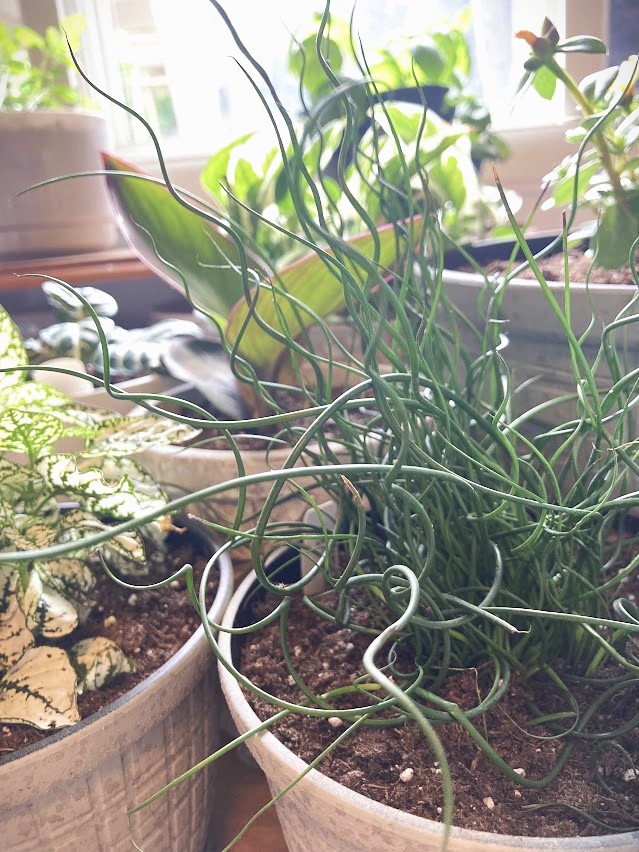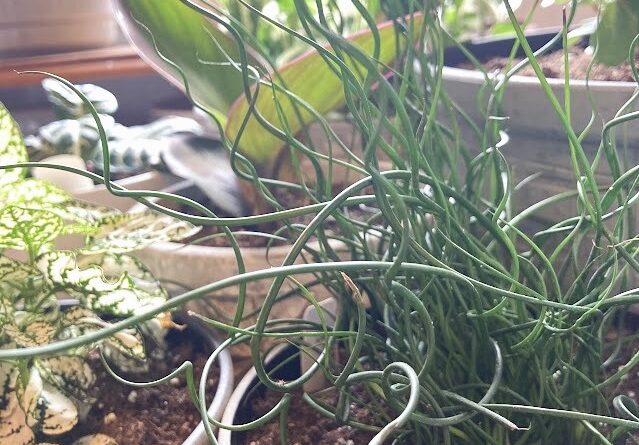From classroom to garden: How plant therapy helps college students
‘Green care’ is good for the brain.
It helps fight depression and anxiety.

By Amanda Kelly
Special to the Knightly News
amanda.kelly@mymail.centralpenn.edu
Have you ever felt like you’re drowning in classes, homework, maintaining a social life and managing family relationships, but you don’t know where to turn your head for some quiet and relaxation?
“I do believe in green care and its positive effects on mental health and I can see how this would apply to those with mental health issues, particularly with depression and anxiety,” Anne Bizup, program director of allied health at Central Penn College, said.
“Green care,” otherwise known as plant therapy, is a broad term that means connecting with nature for mental health. This could be achieved through social and therapeutic horticulture, including growing food and other plants, green exercise, wilderness therapy, and nature arts and crafts.

Photo by Amanda Kelly
A practice as old as civilization, this hobby has made its way through the centuries, becoming more popular with time.
“I remember in the early 1970s, Lancaster County was one of the first places kids from inner cities were sent to visit during the summer months in a program called Fresh Air Kids,” Lori Eberly, a physical therapy professor at Central Penn, said.
The Friendly Towns Program of the Fresh Air Fund arranges for children from low-income communities in New York City to stay with volunteer host families in suburban and rural areas along the East Coast for a week during the summer. The nonprofit, which has been in existence for 142 years, has provided free summer experiences to 1.8 million children between the ages of 7 and 18 through its sleepaway camps and the Friendly Towns Program, according to its website FreshAir.org.
Plants are proven to be beneficial to the brain, and green care’s benefits to mental health have been studied extensively.
“If students are provided and educated on the benefits of plants, they may find a new hobby with the knowledge of plant care,” Eberly said. “The idea of reduced stress and improved oxygen levels will be a great benefit to students feeling stress and anxiety due to their academic load.”
So, you may ask, how do I get out of my head for a little while and into this hobby?
That answer is simple. You could take a walk around campus, paying attention to the greenery around you, or go on one of the many hikes available at Wildwood Park in Harrisburg. For a busy college student, though, there is an easier way to reap the benefits of green care: Buy a plant.
Another option would be to attend the Cumberland County Plant Fest and Sale, hosted by Penn State. The event is a 20-minute drive from Central Penn’s campus. It will be held May 20, from 8 a.m. to 1 p.m., rain or shine, at the Cumberland County Service Center, 310 Allen Road, Carlisle. The fest will showcase the master gardeners of the community, who will teach visitors all things plant care and how to start, and tend, a garden, as well as offer a variety of houseplants for sale.
For more information, contact the Penn State Extension office at 717-240-6500, email CumberlandExt@psu.edu, or visit the website, at https://extension.psu.edu/cumberland-county.
Editor’s note: For more information on how plants can help people’s health, check out this Knightly News story — Seven houseplants to buy now.
Kelly is a Central Penn corporate communications student. She wrote this story for a broadcast-writing class Professor Paul Miller is teaching this term.
Comment or story idea? Contact KnightlyEditors@CentralPenn.Edu.
Edited by media-club co-adviser and blog editor Professor Michael Lear-Olimpi.




